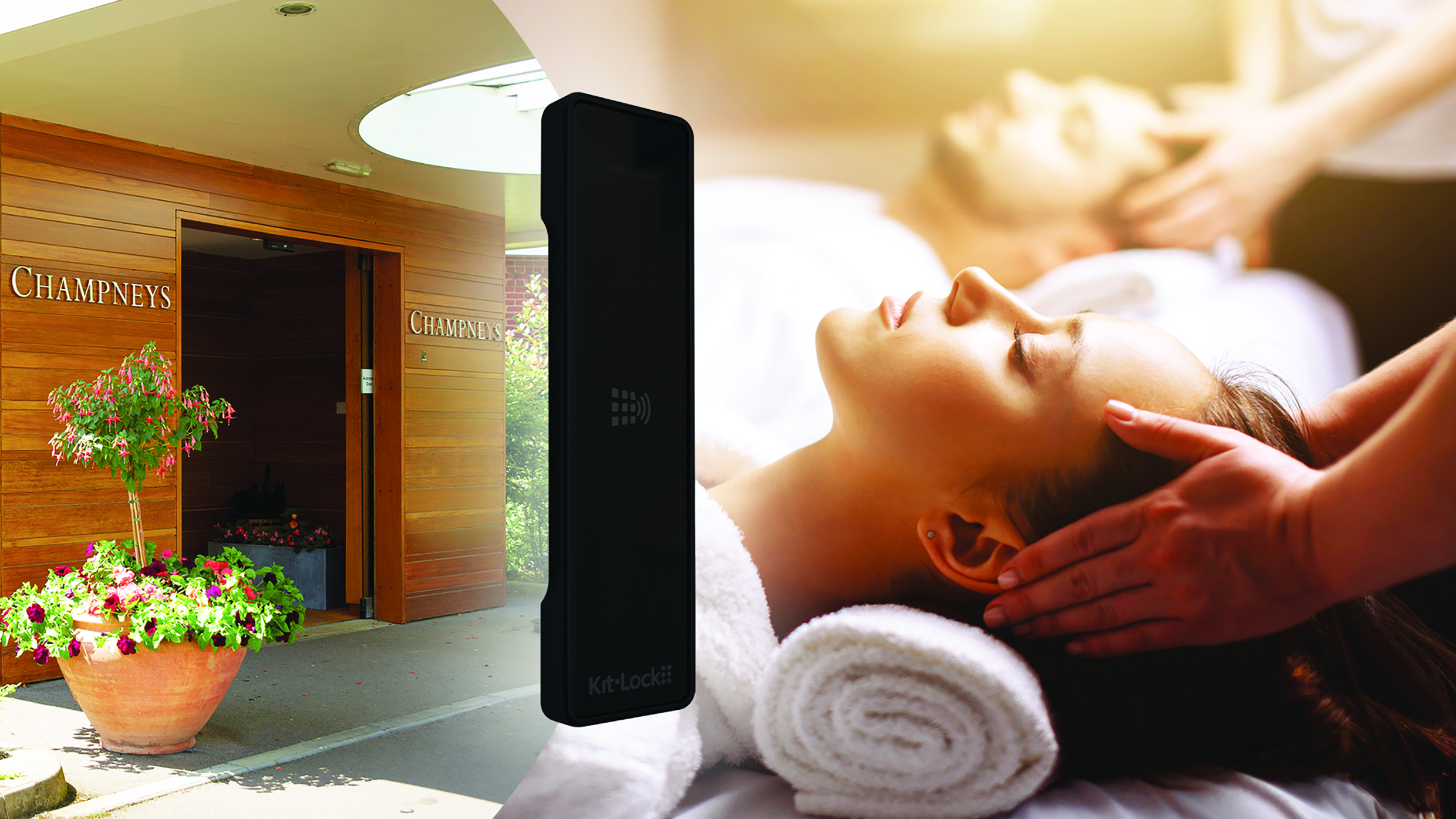In a world where information, technology and consumer demands are constantly evolving, the way we control access to physical spaces continues to innovate and develop. Codelocks celebrated 30 years in business last year. Now in a new decade, Codelocks’ experts recap on successes from 2023, unpack the current trends shaping the access control sector and predict the future changes they think we can expect to see.
Past: 2023 Successes – Dominic Ryan, Codelocks’ Operations Director
“This year, we’ve continued to innovate and address our customers’ demands and feedback in our product development. In August, we launched the KL10 Public, adding public functionality to one of our best-selling locker locks. The mechanical KitLock now provides multiple users with keyless access to shared storage at public facilities like gyms, leisure centres, spas, offices and shared workspaces.
“Earlier this year, we entered a new partnership with leading gate hardware company, D&D Technologies, marking our breakthrough into the US fence industry. This was an important step forward for our Gate Solutions by Codelocks range, enabling us to start delivering access control solutions for fenced perimeters and outdoor spaces safeguarding restricted spaces including schools, colleges and hospitals.
“Since establishing our Netherlands offices in 2021, we’ve completed projects with organisations of all sizes and grown our European customer base. We also moved our Australian operation to significantly larger premises in Chatswood, near Sydney, enabling us to accommodate a growing market in the Asia Pacific region. And growth in the US necessitated the opening of a new warehouse in Indiana, to better service our central and eastern American customers.
“Another key highlight was the launch of our On the Road training. For the first time, we’ve been able to expand the reach of our expertise by bringing our 101 mechanical and electronic lock troubleshooting courses to distributor sites across the country.
“Finally, we’re incredibly proud of the brilliant team of experts we’ve built at Codelocks. This year, our newly launched Meet the Team blog series enabled us to share the stories and expertise behind the people who help drive Codelocks forward.”
Present: The Current Market – Joanne Milne-Rowe, Codelocks Sales Director
“Since the pandemic and as we move towards more sustainable living, we’ve seen the rise of shared spaces like co-working offices, bike storage, parcel collection and phone charging lockers.
“A co-working office, for example, may include cabinet storage, a locked meeting room or even a gym with lockers. Each of these spaces will require some sort of locking solution that allows different people access for a temporary period of time. What’s more, from a management perspective, facilities managers want to take physical presence out of the equation. Having one person manage a large number of keys is time-consuming, costly and simply unnecessary. At the same time, unification has been a key 2023 trend and we’re increasingly seeing previously disparate systems being brought together to offer holistic and seamless security solutions.
“Codelocks NetCode® Technology has been the backbone of a number of exciting and innovative integrated projects, from co-working offices to ‘click and collect’ lockers. It allows companies to control access by creating codes that have a specified start date, time and duration that will automatically expire at the end of the period. Plus, thanks to our Codelocks Connect Portal and application programming interface (API), users can simply receive a code through the same platform the booking is made on, streamlining the user experience. We’ll continue to see these integrated solutions take shape across multiple sectors as businesses explore shared spaces and services.
“As a Sales Director for the UK and Middle East, I’ve also witnessed major differences between the access control markets across regions. We regularly work with customers on retrofit and refurb projects to offer a smart solution that is compatible with quite traditional applications.
In comparison, in Saudi Arabia, it’s much more likely a building would be knocked down and rebuilt from scratch. As a result, the technology we’re seeing there is more advanced and forward-thinking.
In September, I attended Saudi Arabia’s Hotel & Hospitality Expo and was repeatedly asked for biometric solutions for locker applications, which we don’t seem to have demand for in the UK right now.
“Finally, despite increasing digitalisation in other aspects of the access control market, our customers still desire human expertise and support when reaching out for help. The aftercare and hands-on technical knowledge from our customer support team remains one of the biggest factors distinguishing us from our competition.”
Future: Trends and Predictions – Colin Campbell, Codelocks’ Managing Director
“The access control market is growing, set to be worth $12.1 billion by 2024 and the technology is developing at a rapid pace. One of the biggest trends shaping access control moving forward is the growing market of niche rental spaces. The rental market has continued its growth, post pandemic, with all manner of services and collections being offered via lockers, rooms or whole buildings for a short or temporary period of time.
“This trend is being a driven by a number of factors. As Jo highlights, changing behaviours have led to the rise of shared spaces like co-working hubs or co-livings and increasing digitalisation means users are demanding self-service applications and automated access control.
“Businesses are interested in how they can manipulate spaces to offer a service and rent it out time and time again to generate repeat revenue. Increasingly, in the niche rental market, we see subscription-based payment models where users will pay a rental fee per month to access a specific service. For example, one of our customers offers bike storage spaces in urban areas, accessed via a monthly subscription on their app.
“At Codelocks, we’re increasingly receiving inquiries from businesses who have an idea for a project about how they can lease a space, but they’re not quite sure how to manage the access control. This is where we come in to deliver a smart, integrated and bespoke access control solution.
“The development of new cloud-based technology and API solutions is at the heart of enabling this sort of smart access control to work successfully. Moving forward, the industry is investing, innovating and developing its solutions to address this market. For example, at Codelocks, we are exploring the longevity of battery life to last the lifespan of the product, reducing battery changes and associated waste. In the future, I think we’ll see serious innovations in how we can power electronic access control systems, from ambient light technologies to harvesting energy from buildings to run smart locks more sustainably.
“Like every industry, the access control sector is grappling with its carbon emissions, net zero targets and putting effective strategies in place to minimise its environmental impact. In the UK, there’s particularly stringent legislation in place, which will influence how the access control sector evolves moving forward. This will impact everything from communications around sustainability, to life-cycle product assessments and product packaging.
“Codelocks has already made the first steps to address our sustainability such as reducing product and transit packaging and installing electric vehicle chargers at our UK site. However, there’s much more we have yet to do. This year, we hired Paul Campbell as Technical, Quality and Sustainability Manager, to focus on identifying areas for improvement and putting an aggressive plan in place to meet net zero targets.
“In a similar vein, the rise of circular economy will influence the access control sector and vice versa. Firstly, as mentioned, access control solutions are fundamental to facilitating the creation of shared spaces, like coworking offices and shared sport facilities. Secondly, as customers embrace more sustainable practices, I think we’ll see a shift in consumer behaviours countering the throwaway mentality that has prevailed in the last decade. This is a past behaviour that is resurfacing. For example, historically you took shoes to the cobblers to have the soles and heels replaced, rather than buy new. Likewise, to avoid waste, customers will opt for quality access control products that stand the test of time rather than cheaper solutions with a short lifespan. For the vast majority of our products we stock every component part, we offer a full repair service in house, along with comprehensive training modules to extend the life of the product, rather than replace it.
“Overall, technological innovation, societal shifts, evolving security needs and the growing importance of sustainability will continue to influence where the industry is heading. Smart access control solutions will play a key role in facilitating increasingly bespoke, integrated and personalised access control, equipped for the modern lifestyle.”


